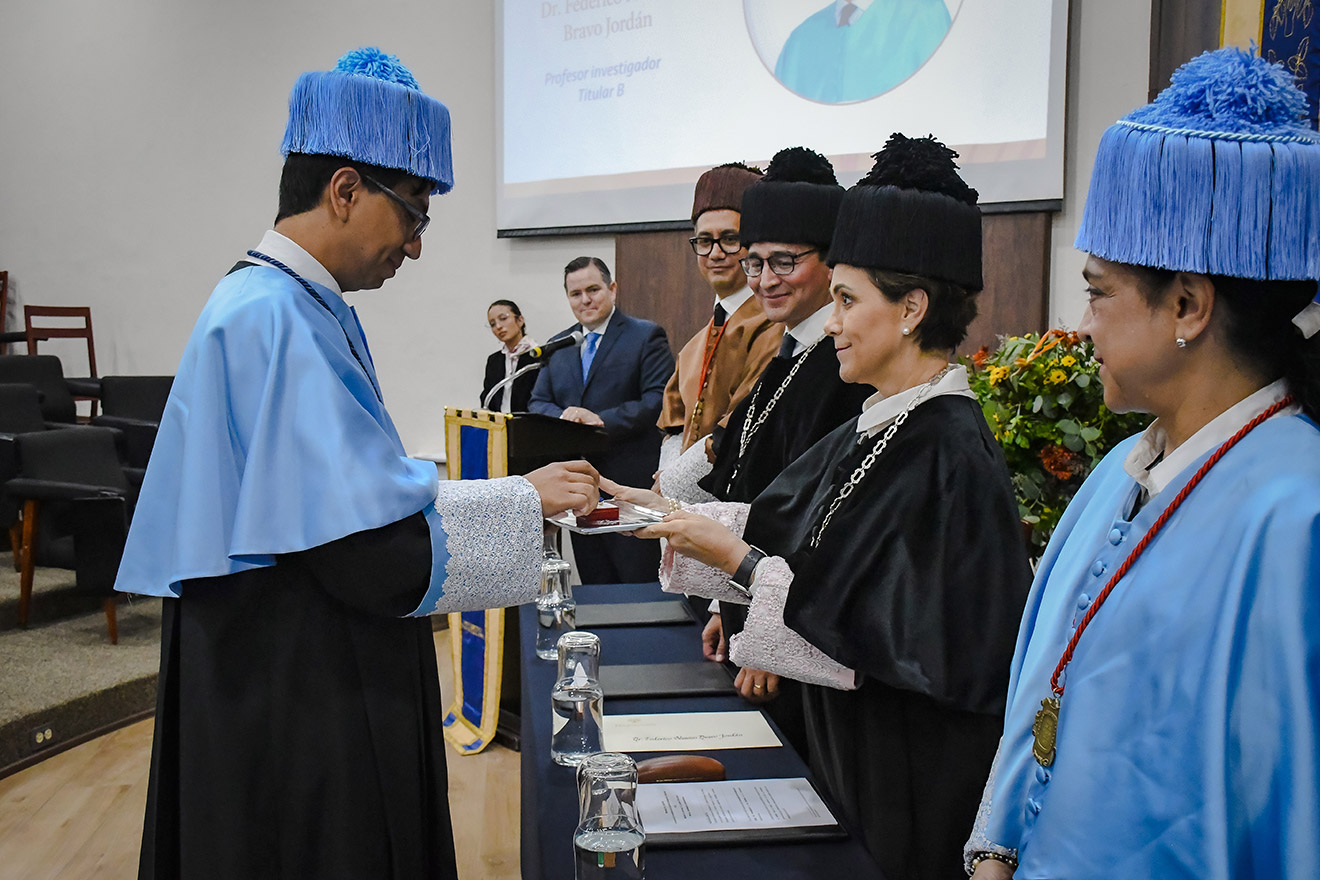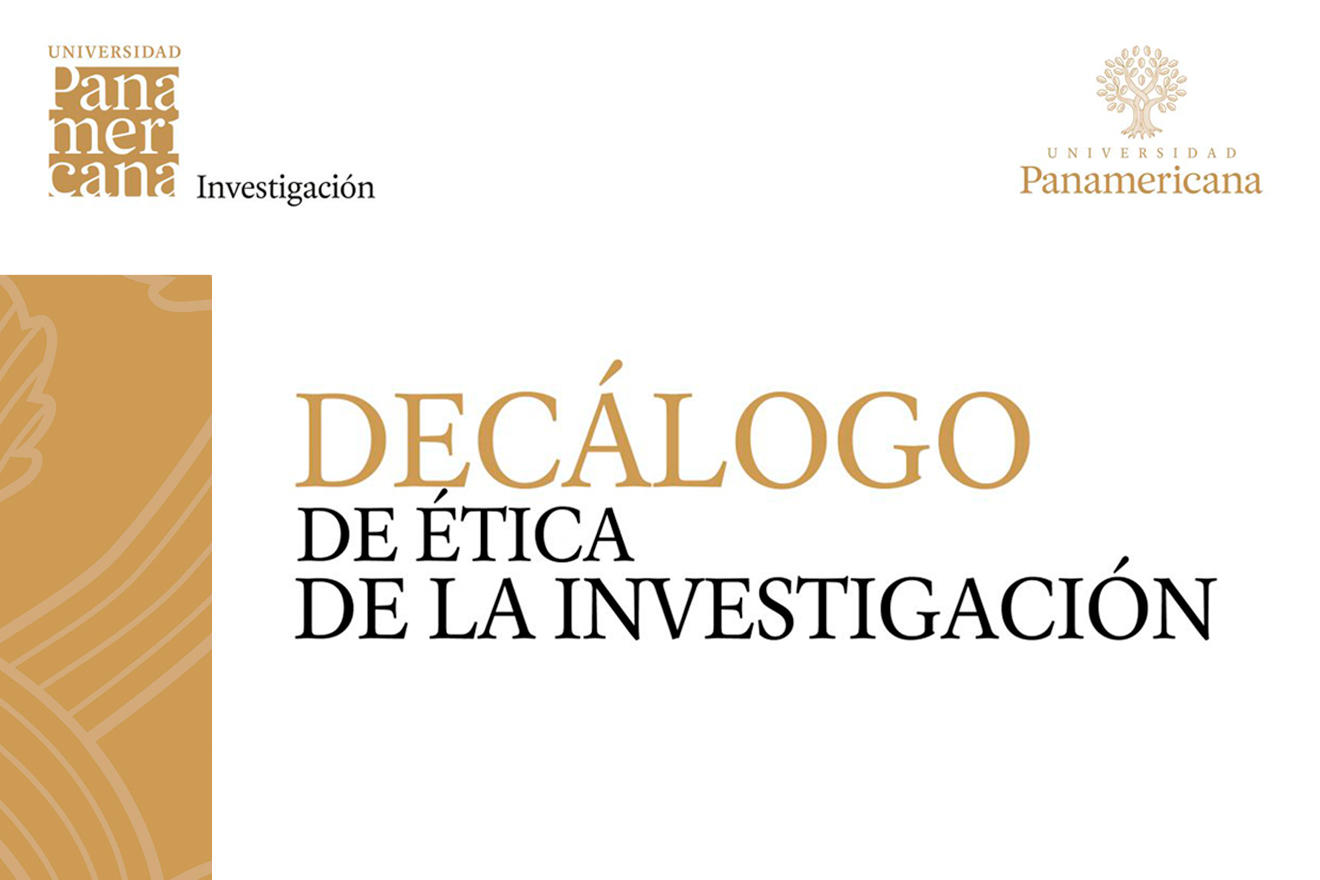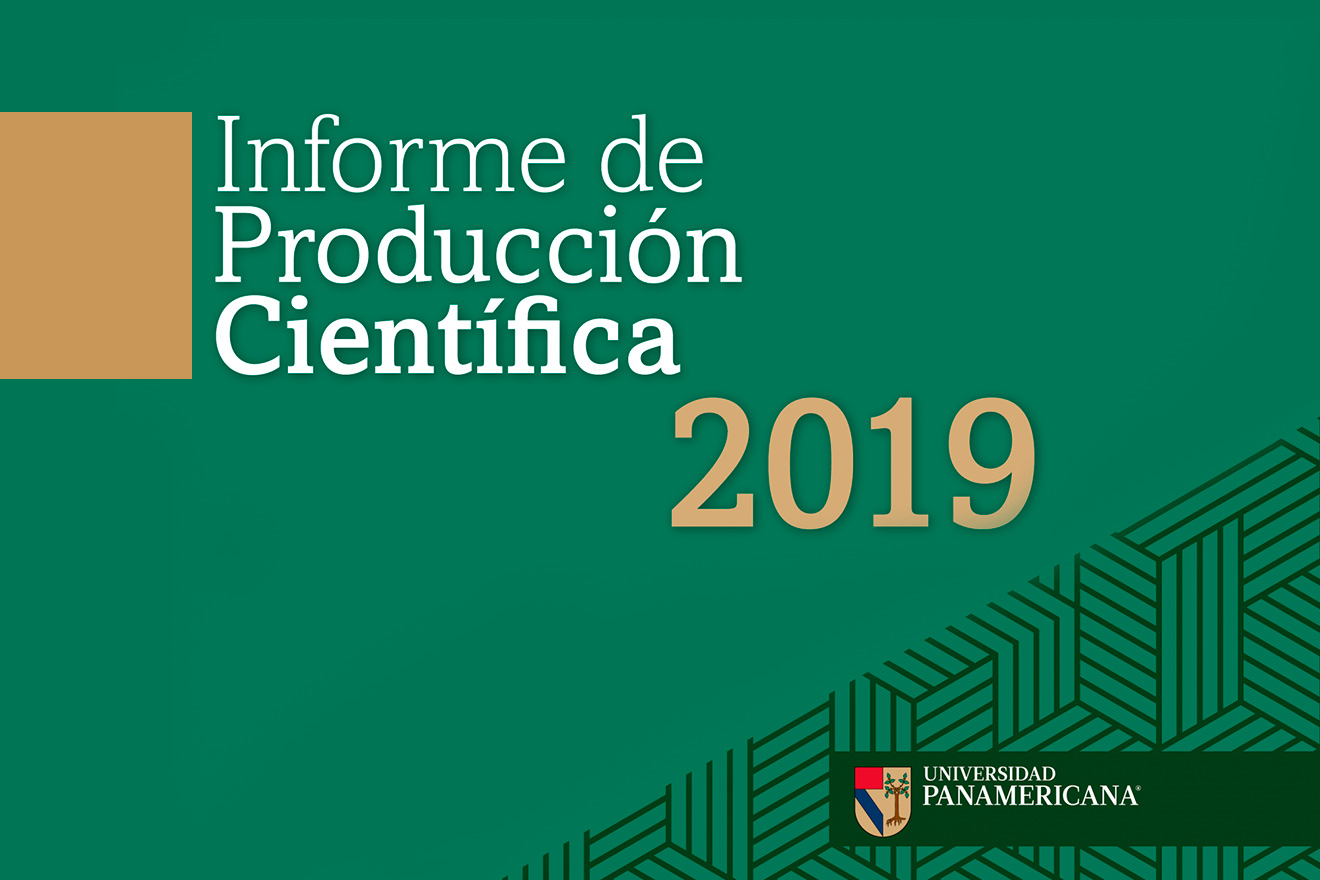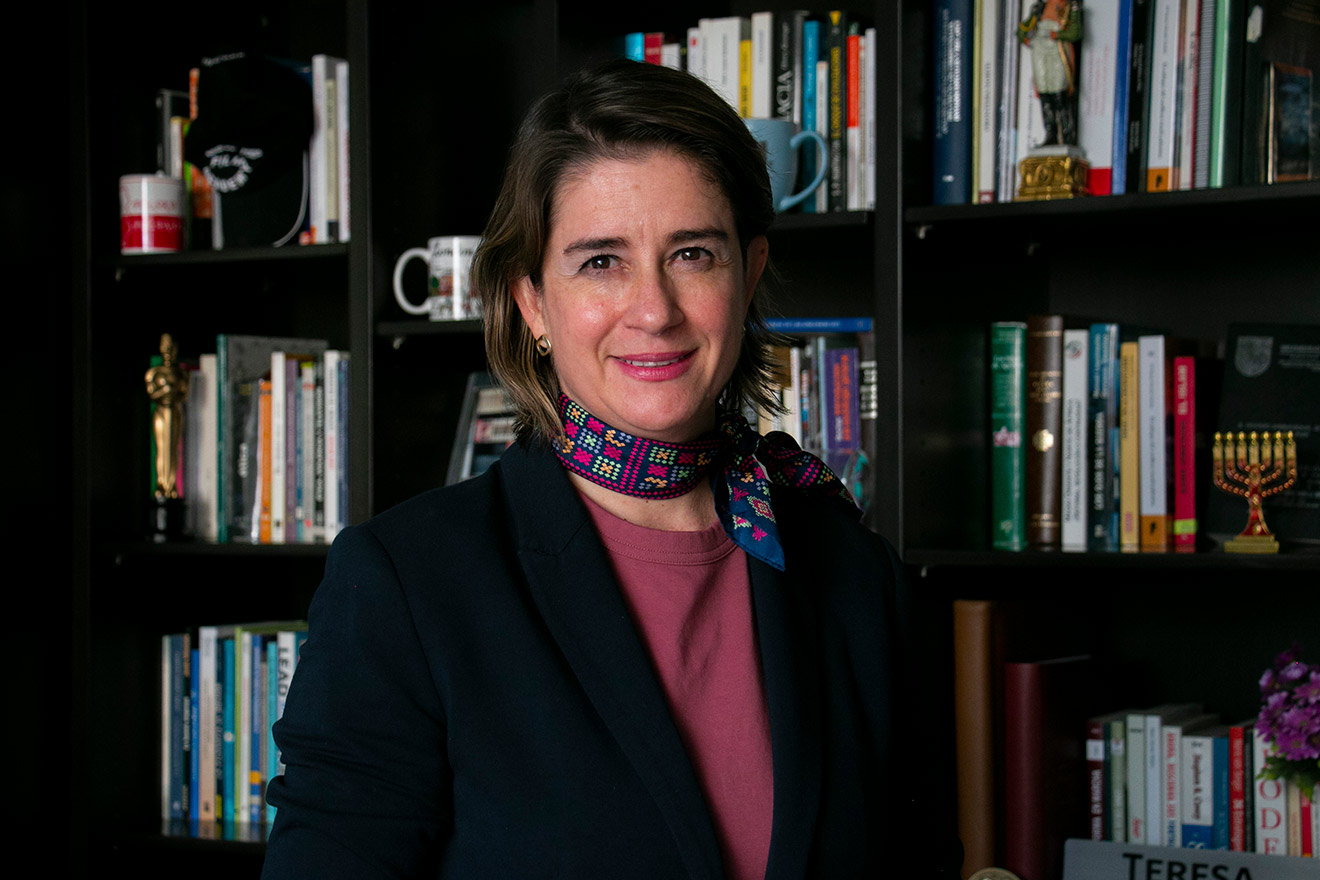Currently, artificial intelligence (AI) has become a powerful tool in a number of areas of society. However, its rapid growth raises questions about its responsible and ethical application. As AI becomes integrated into our lives, challenges arise regarding the creation of reliable and fair systems.
Dr. Lourdes Martínez Villaseñor, head of academy for the Master’s in Data Science at Universidad Panamericana, is aware of this and therefore promotes the responsible and ethical application of artificial intelligence. It is precisely because of the actions it has taken to this end that it has been recognized as Responsible AI Leader of the Year in North America.
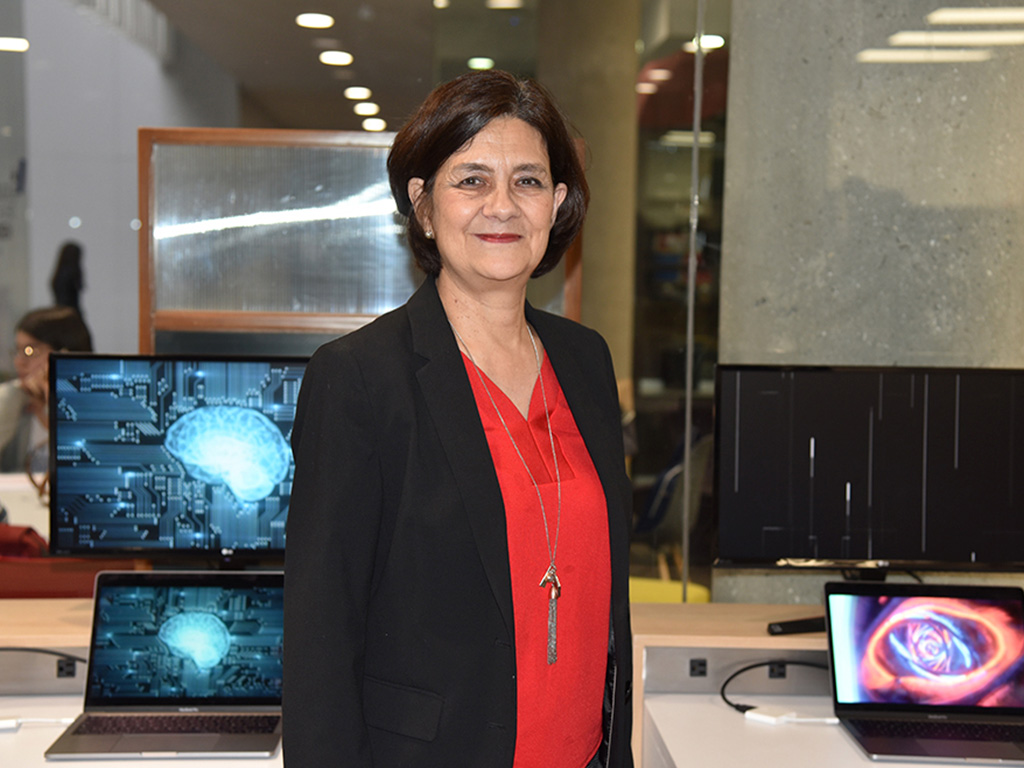
Service to the scientific and academic community
Such recognition, doctor Martínez explains, was awarded due to her experience since 2014 to promote AI ethics in different activities: publications, organization and participation in national and international forums, and as a teacher.
For the past two years, she has led special sessions at the International Joint Conference on Neural Networks (IJCNN) related to the ethical challenges of AI systems for healthcare and medicine. Furthermore, in 2023 she was part of the editorial committee for an issue of the scientific journal of the Mexican Society on Artificial Intelligence called Komputer Sapiens devoted to ethics in AI.
In relation to the service activities for the scientific community, she has also promoted the inclusion of three panels in these days of Ethics in Artificial Intelligence in the organization of national and international congresses (COMIA and MICAI) and has participated as an expert on these topics on an ongoing basis.
Similarly, she is responsible for and teaches the subjects of AI Ethics and Ethics for Data Science at the undergraduate, master’s and doctoral levels at the Universidad Panamericana.

Reliable AI systems in healthcare
Currently, there is great enthusiasm and expectations for artificial intelligence technologies. However, there are major negative consequences.
When discussing the challenges she has faced in her professional career in relation to the creation of reliable, accessible, inclusive and impartial AI systems, she notes that the main challenges are in relation to privacy, security, fairness, transparency and explainability, accountability, human control and promotion of human values.
“Applications in healthcare are very critical as people’s lives are at stake. In this domain, the ethical design of intelligent systems is of course mandatory and particularly relevant. To this end, it is vital to take care of ethical principles in the application of intelligent systems,” she says.

She likewise adds, “The medical community is very cautious, and rightly so, about the benefits of AI for medicine, so it has been a seven-year journey to build bridges to engage them in the development of systems to gain their trust and adoption.”
She also points out that a major challenge is to put into practice the principles, good practice guidelines and international regulations and laws. “This is still an open issue that is difficult to address on a case-by-case basis, and it becomes more convoluted given the emergence of generative AI technologies such as Chat GTP that have extremely complex models.”
Working together
She says AI is transforming all sectors of society. In actual fact, it drives operational efficiency by automating repetitive tasks and advanced data analysis.
However, she says, “the problem is that there is no way to ensure that the benefits of AI are spread equitably and fairly across the world as it is a multifactorial issue that concerns the entire ecosystem.”
In this way, she points out: “We must work from all sectors (academy, government and business) to make everyone aware of the need to take into account the ethical dimension, make laws and commitments to self-governance and inclusion. For each smart system, the impacts on human rights and human dignity must be assessed with all stakeholders and in an interdisciplinary fashion.”
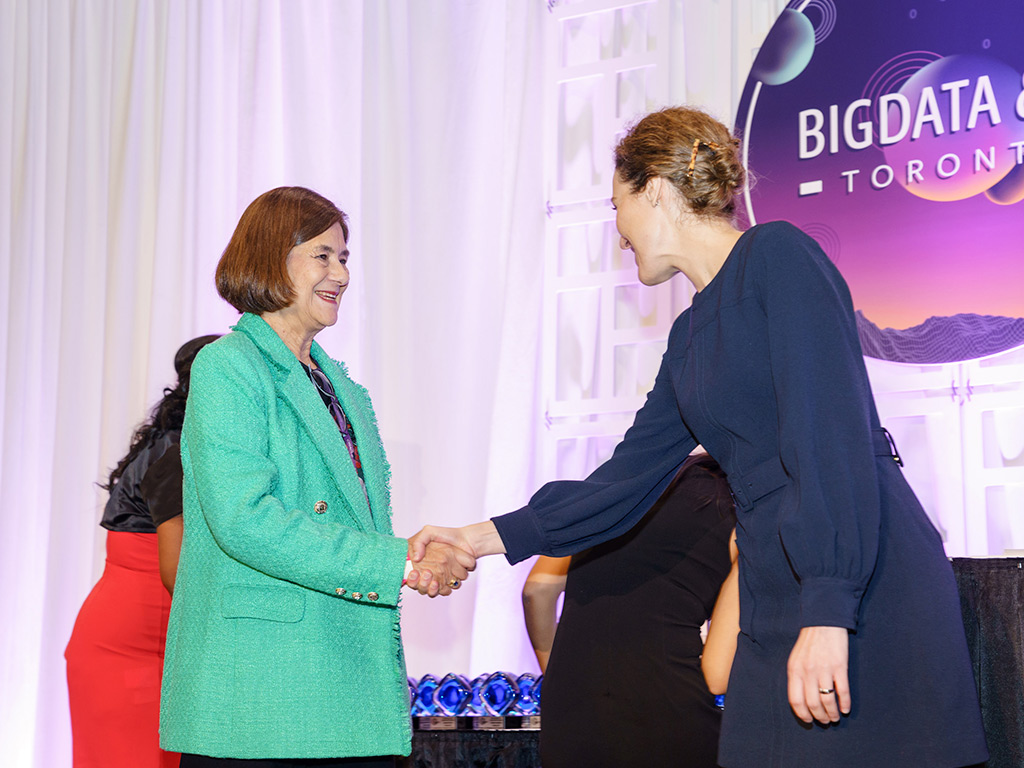
Work in other areas
Another important role of the academy is to be part of the Technical Advisory Committee of the Preliminary Electoral Results Program (COTAPREP). This committee is tasked with advising and following up on the implementation and operation activities of the PREP, a system that provides preliminary election results through the capture and publication of the data collected by polling place officials.
“My role will be to participate in these activities and issue recommendations to improve the preparation of systems and processes for the implementation and operation of the PREP,” she explains.
In the same vein, the General Assembly for the election of the Board of Directors of the Mexican Society on Artificial Intelligence (SMIA) for the period 2024-2025, ratified that Dr. Ponce will be its president; while Dr. Hiram Ponce, also a research professor at the Panamericana School of Engineering, will serve as vice-president, both as of January 1, 2024.
In this role, the researcher will be responsible for the management of the board of directors of SMIA, as well as the development and execution of the strategic plan and the link between the society and the academic, business and government stakeholders.
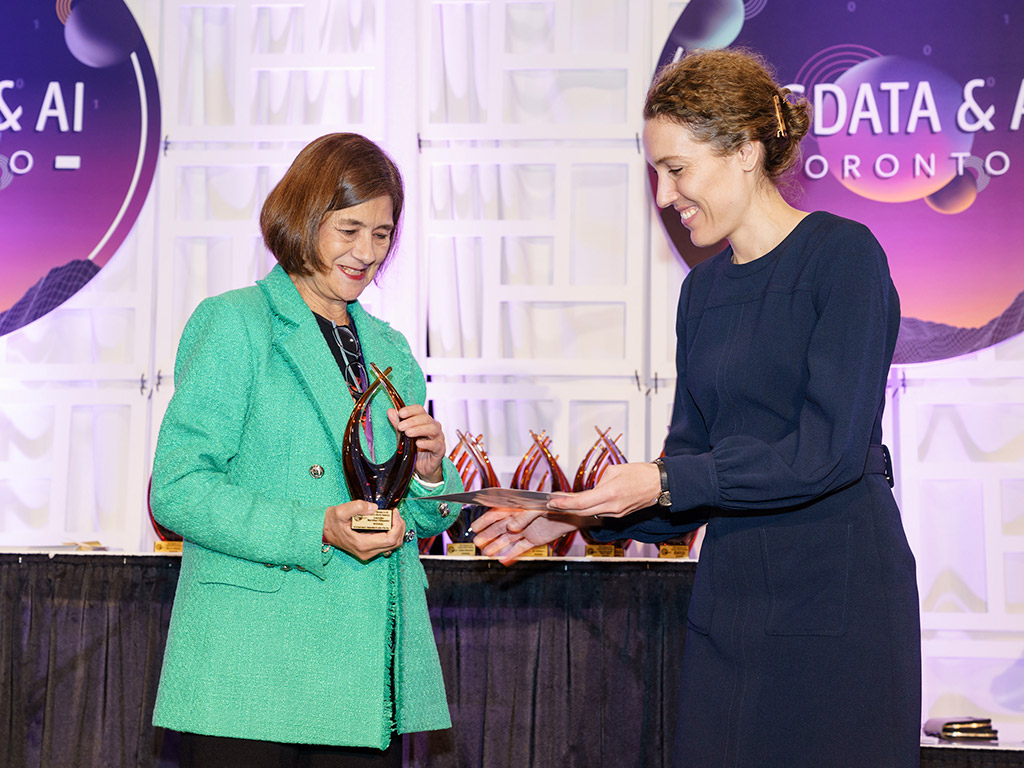
Contribute to the development of AI
“To be part of the experts who can directly contribute to the development of these technologies and thus to the development of our country is a great privilege and a great responsibility,” says Dr. Lourdes.
Similarly, she tells her female students, “As women, we have unique perspectives and our creativity is needed to find solutions to complex problems.”
“Today more than ever there is a need for more representation of women both in the development of intelligent systems, influencing decisions throughout their life cycle, as well as at all levels of government and business, to take advantage of AI and meet the challenges and difficulties of these technologies,” she concludes.
Researcher’s data
Dr. Lourdes Martínez Villaseñor, head of academy for the Master’s in Data Science at Universidad Panamericana.
SNI level I
Learn more about Universidad Panamericana’s researchers and their lines of research at: https://www.up.edu.mx/investigadores-panamericana/



